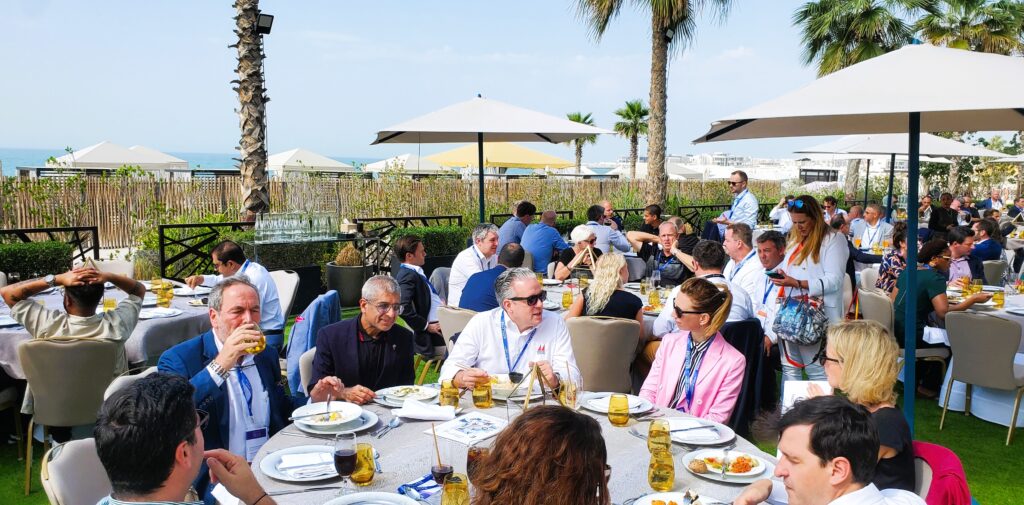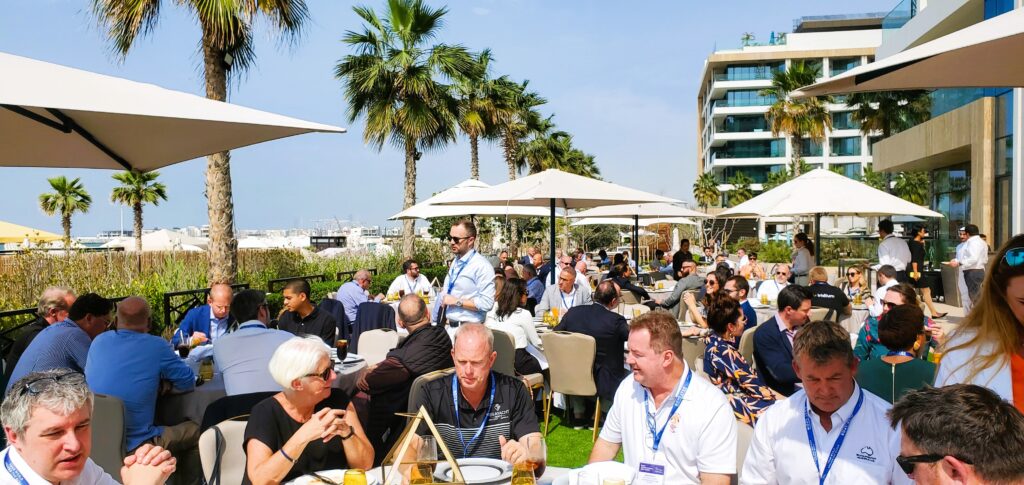WINDS OF LUXURY
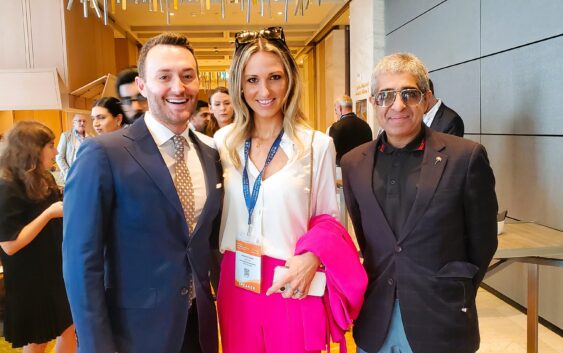
The Middle East Yachting Conference was held during the Dubai International Boat Show 2023 at the luxurious Mandarin Dubai, brought together over 150 inventors/innovators/ecosystem and officials from the boating and yachting industries, some of the industry’s best minds from around the industry to hear diverse perspectives from across the global landscape, discussed some of the industry’s key trends around technology, industry achievements, geopolitics, investments, and debated the industry’s future strategy and policies in a challenging yet optimistic market, to explore the future of yachting in the Middle East and beyond. “Winds of Change- Exploration at the Frontiers of Luxury,” was the conference theme for 2023.
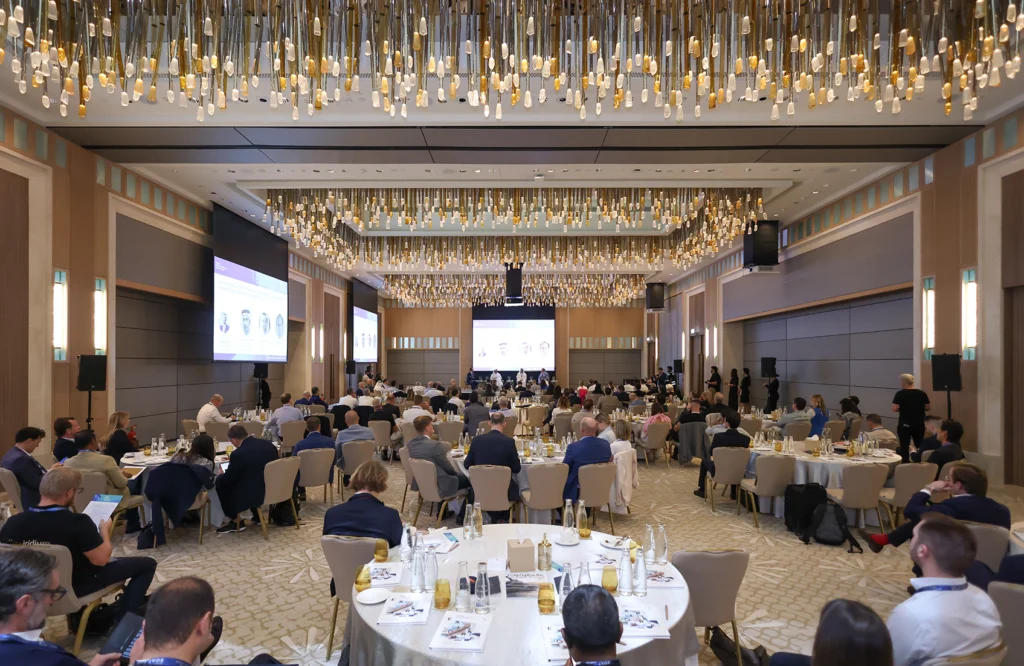
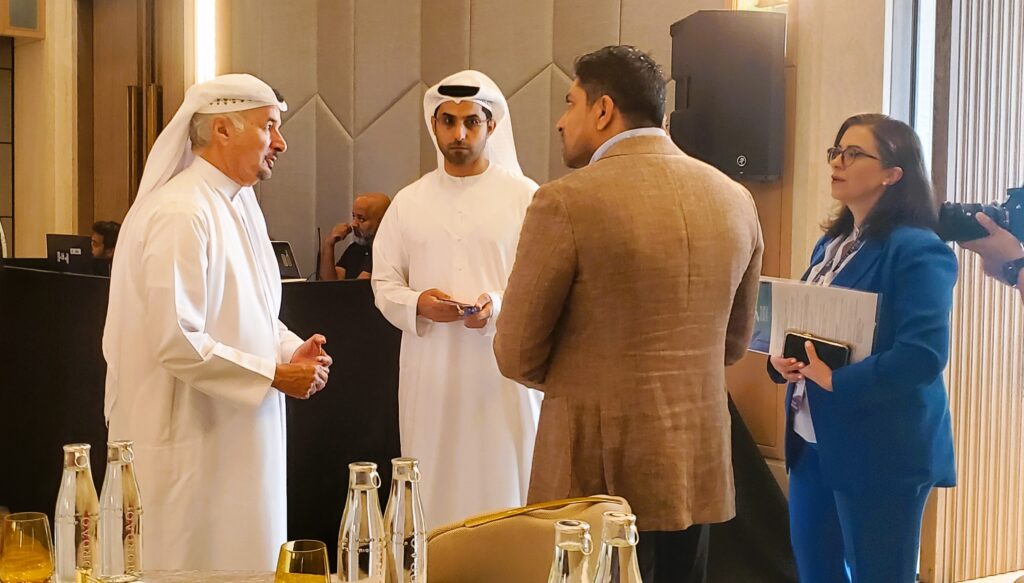
Few discussion were on –
How are the Middle East’s megaprojects transforming the region into an iconic superyacht destination?
Sustainability in the Yachting Industry – Making Waves or Greenwashing?
A deep dive look at the Meyer Werft shipyard’s new 210-meter superyacht concept – project TWO10
Does the Tiger have a Tipping Point? In a time of exponential growth, how far can supply meet demand in The Asia & Asia Pacific superyacht market?
Could inflation, rising costs of materials, sanctions, geopolitics and investment trends in the region capsize the yachting industry?
Using LEO satellite technology for autonomous navigation; enhancing safety systems, high-speed and constant Internet connectivity.
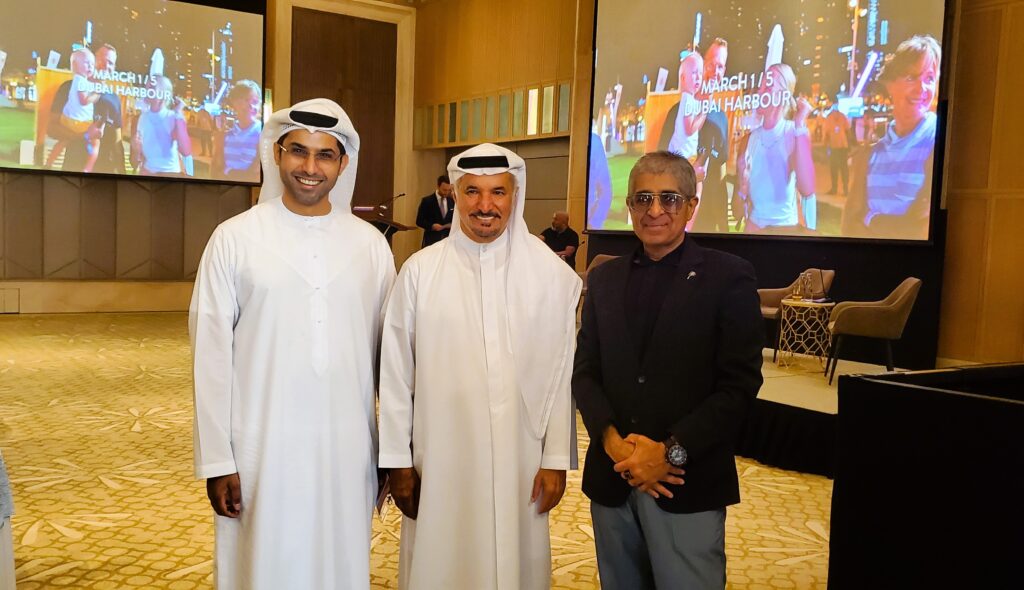
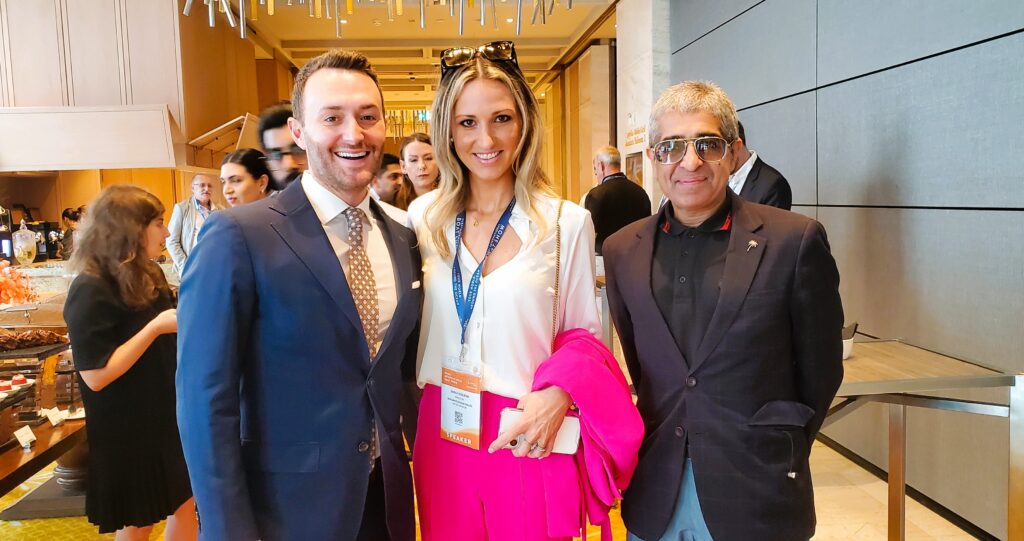
Few of the speakers –
- HE Saeed Mohammed Hareb, Secretary General of the Dubai Sports Council
- Captain Saif al Maheiri, Managing Director of the Abu Dhabi Ports and Maritime Authority
- Abdulla bin Habtoor, Chief Portfolio Officer of Shamal and Dubai Harbour Marina
- Faisal Jawad, CEO and Founder of the Al Faisal universal center for rehabilitation
- Barbara Lang-Lenton, Director of the Aquarium at Jumeirah Group’s flagship Burj Al Arab Jumeirah, and
- Abeer Al Shaali, Deputy CEO of Gulf Craft
- Sarah Colbon, co-founder of London-based Bergman Design House
- Francis Lapp , Sunreef Yachts’ Founder and CEO
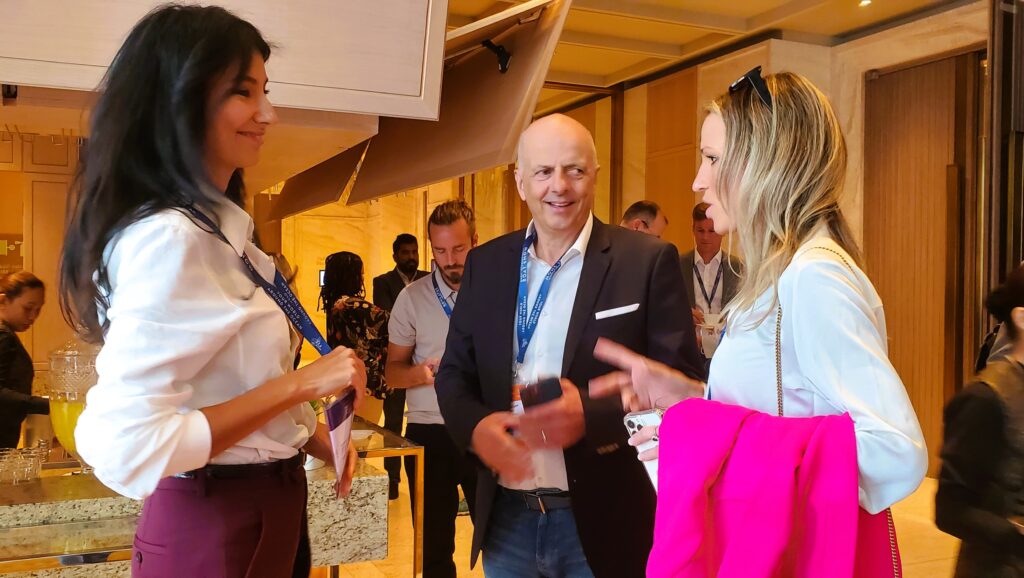
The Middle East Yachting Conference (MEYC), held on 28 February 2023, covered some of the industry’s important trends in technology, geopolitics, investments, and future strategy in a tough yet hopeful environment. The schedule was jam-packed with presentations and panel discussions on a variety of major problems in the yachting industry, with a focus on the growth of the marine leisure sector in the Middle East.
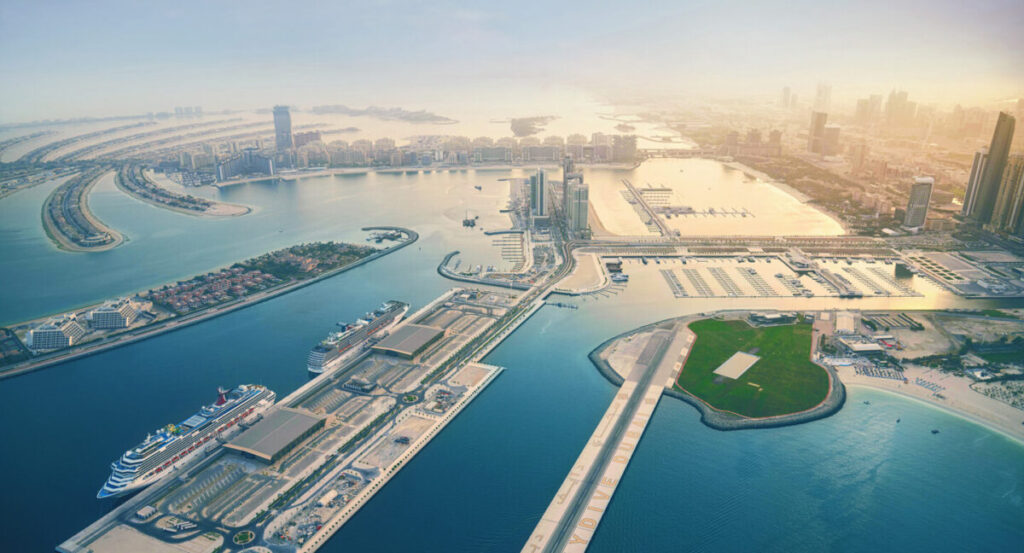
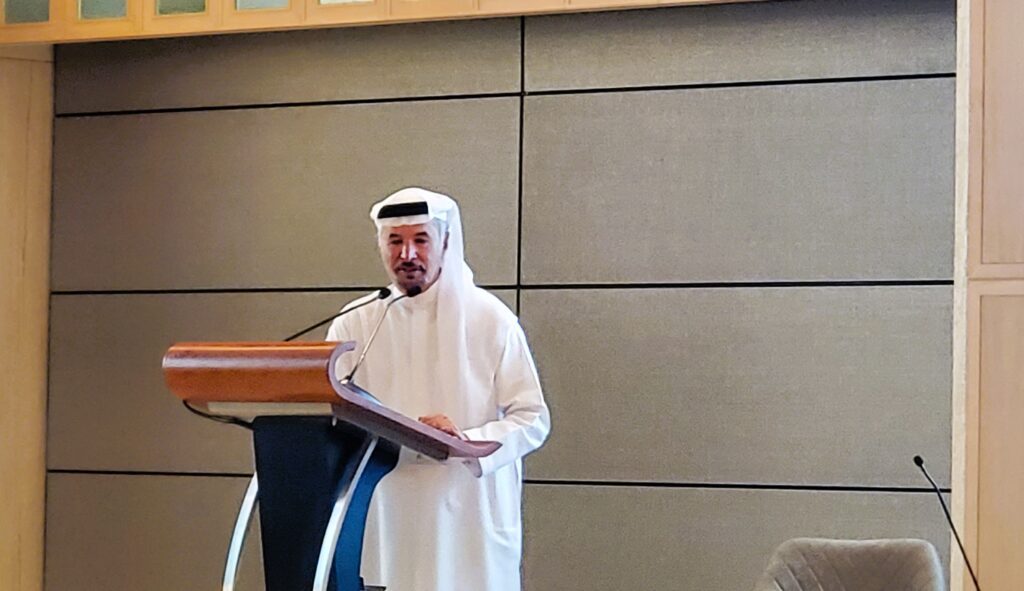
Regulations, infrastructure, and the demands of boat owners were among the primary topics discussed during the day. The Conference, an important event in the DIBS calendar, was formally launched by HE Saeed Mohammed Hareb, Secretary General of the Dubai Sports Council (above), who noted that Dubai has a long history of yachting due to its own shipyard, Gulf Craft. The Middle East Conference and the Dubai International Boat Show have matured, and Dubai has established itself as a new maritime tourism centre.
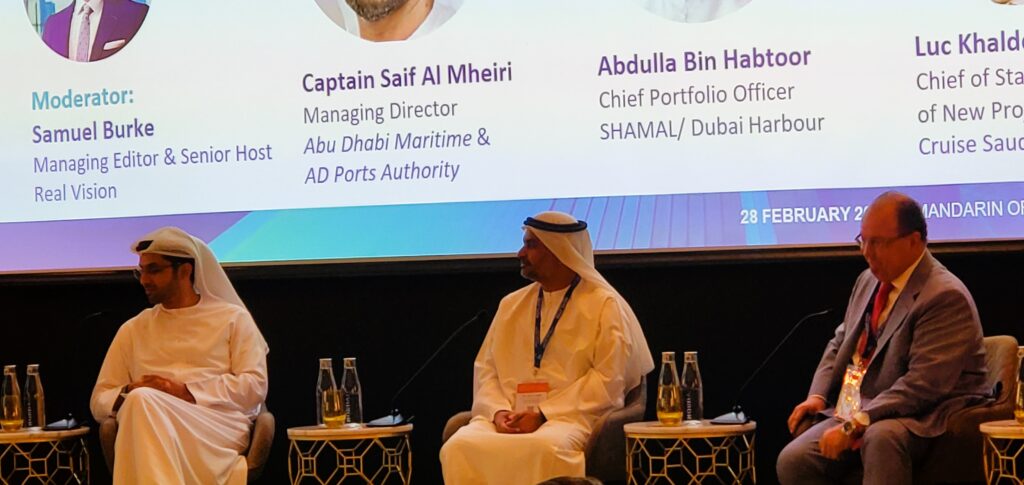
The morning panel talks focused on how Middle East major projects are helping to make the region a superyacht destination. Dubai Harbour Marina was cited as an excellent example, and the 700-berth facility now serves as the host location for DIBS. Captain Saif al Maheiri, Managing Director of the Abu Dhabi Ports and Maritime Authority, explained:
“Over the last two years we have dredged over 300km of channels to depths that allow for the movement of large yachts. We currently have some 4,200 berths in Abu Dhabi, with a number of new developments in the pipeline.” He highlighted that the UAE has the potential to be a winter destination, whereas the Mediterranean is a summer destination. Several marina developments are now ongoing in Saudi Arabia, with Jeddah and the Red Sea being developed as new destinations.
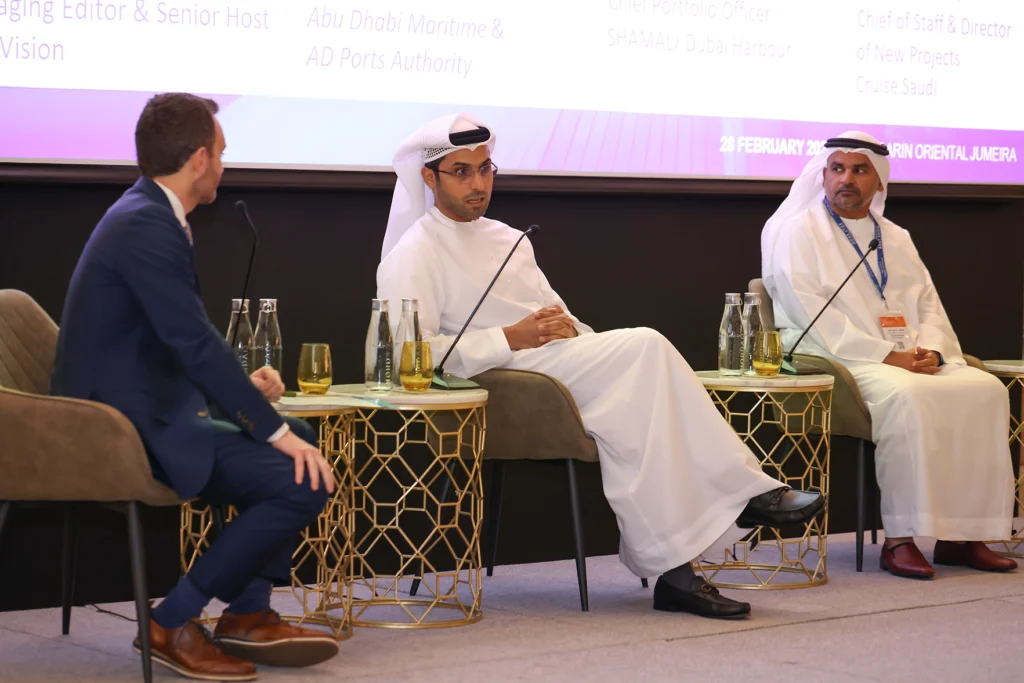
Luc Khaldoun, the director of new projects at Cruise Saudi, said, “It is important to develop the region as a destination, so it is not only about berths for yachts but also about good restaurants and hotels.”
Dubai Harbour allows Dubai inhabitants to reconnect with the water, but it also has four restaurants, six shopping shops, and a variety of other amenities. Abdulla bin Habtoor, Chief Portfolio Officer of Shamal and Dubai Harbour Marina, stressed the importance of “people identifying with the lifestyle”. “Our biggest challenge is handling 200 yacht movements a day,” he said. Over the next 10 years, more effort will be needed to connect the Middle East’s maritime recreation industry. This involves reducing rules and establishing new berthing and repair/refit capacity.
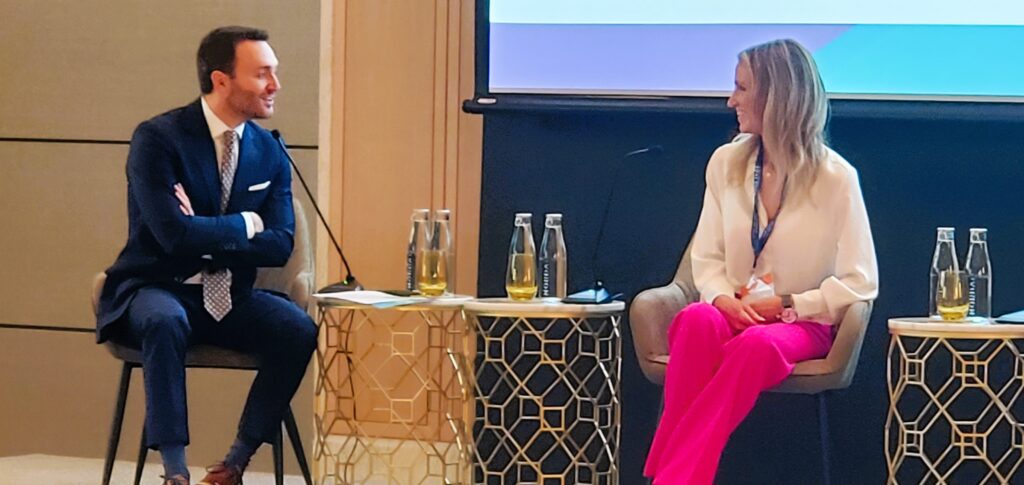
Another panel discussion focused on the future sustainability of sailing through design and aiming towards zero emissions. Sarah Colbon (above, right), co-founder of London-based Bergman Design House, discussed the company’s development and testing of new boat materials that are more ecological and recyclable.
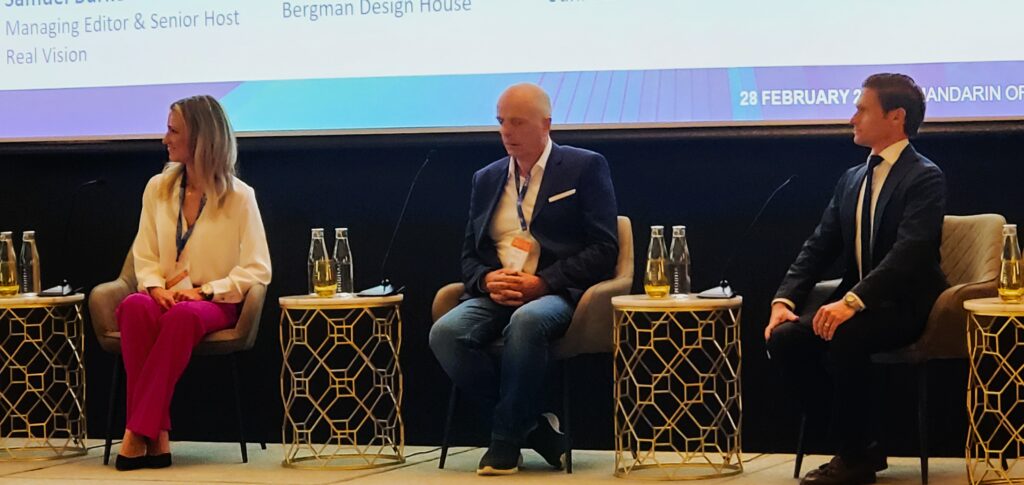
Sunreef Yachts’ Founder and CEO, Francis Lapp (above, centre), noted that SUNREEF works on eco projects and work with solar panels presently account for 50% of the company’s market. “We are building our first hydrogen-powered catamaran which is an 80ft yacht and will be launched in 2024,” Lapp commented.
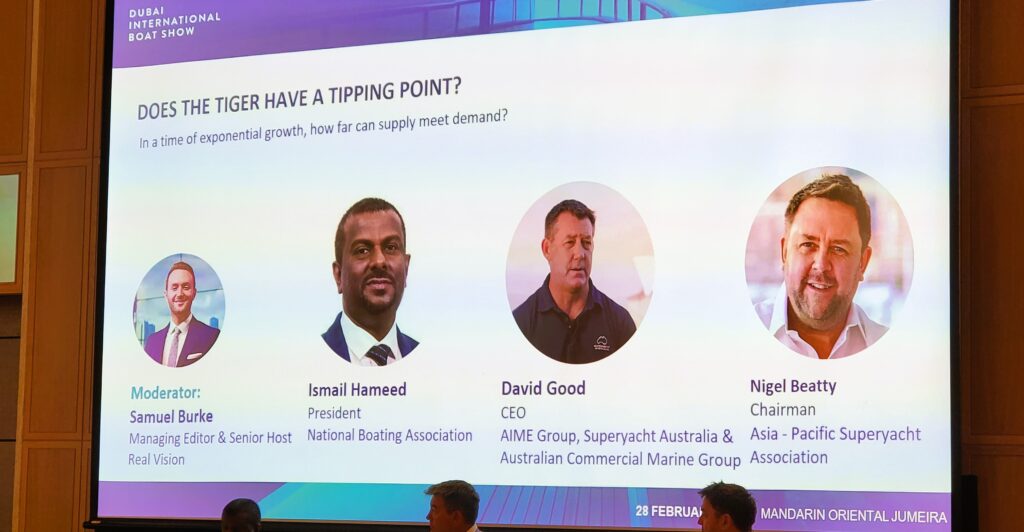
A panel discussion centred on Asia-Pacific was titled ‘Does the Tiger have a Tipping Point?’ The panellists were Nigel Beatty, Chairman of the Asia Pacific Superyacht Association, David Good, CEO of AIMEX (the Australian International Marine Export Group) and Superyacht Australia, and Ismail Hameed, President of the National Boating Association of the Maldives. The region’s development in ownership and chartering was examined.
Good discussed the return of Australian-owned superyachts to their home ports, which resulted in an increase in the number of superyachts in domestic waters from 59 to 120. “Prior to Covid, the largest superyacht in Australia was roughly 44m, but after Covid, there were nine ships larger than 50m, including one measuring 74.5m.
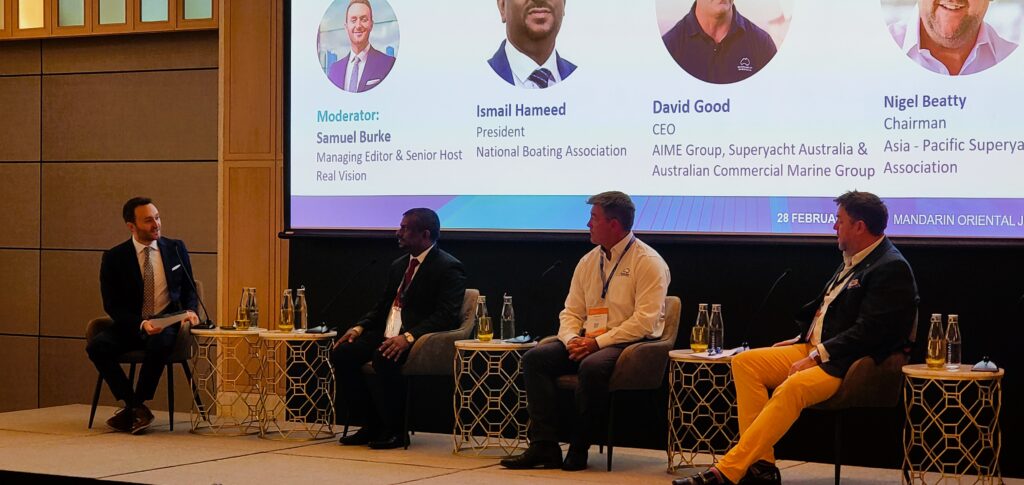
Beatty discussed the projected increase in superyacht trips and inquiries from superyacht owners interested in visiting Japan. To support the predicted rise in bigger boat visits, around ten superyacht dock facilities are being developed in various towns across Japan, with all capable of accommodating 100m yachts and half exceeding 150m vessels, and they will be ready by 2025–26. Beatty also touched on steps being pursued in conversations with the Japanese government to enable foreign-flagged boats to charter in Japan. He commented, “There are three groups involved in this, including one with which I am actively involved. Beatty highlighted the need for the Asia-Pacific countries to work together to form a strong APAC network to support superyacht visits and promote the region as a whole.”
According to Hameed, the number of superyachts cruising and chartering in the Maldives has increased by 80% since the COVID-19 pandemic. The local boating community has profited from this influx, but present policies and processes must be reconsidered in order to maintain a larger portion of the economic advantages inside the Maldives. According to Hameed, present pricing makes superyachts pay less than local charter businesses. He also noted the important role that Middle Eastern enterprises like Gulf Craft can play in yacht maintenance to assist superyachts visiting the region.
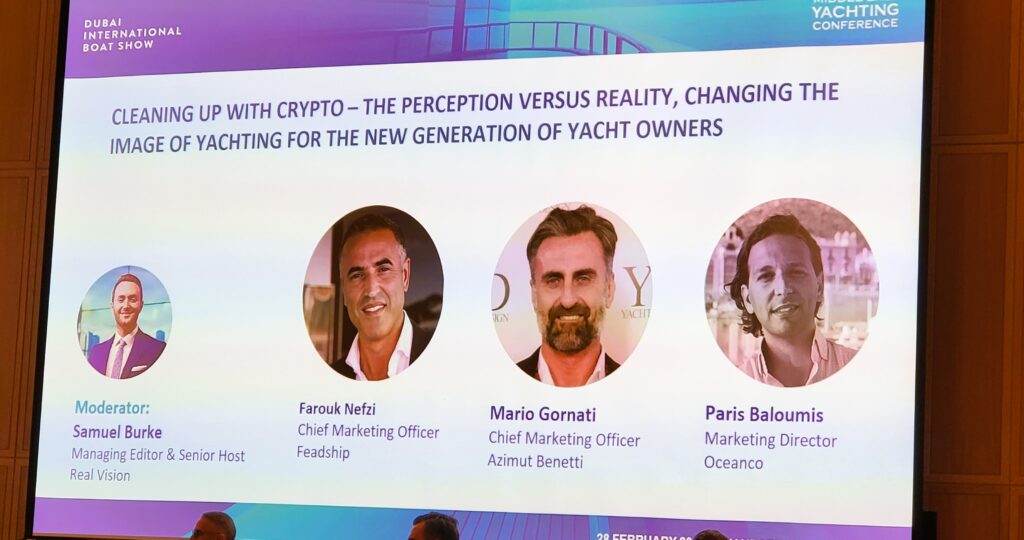
An enticing panel discussion on ‘the role of crypto’ and ‘a new generation of yacht owners’, which were discussed by three superyacht marketing experts – Farouk Nefzi, CMO of Feadship; Mario Gornati, CMO of Azimut-Benetti; and Paris Baloumis from Oceanco, provided new insighs on future sales of yachts/boats.
There is increased understanding of new yacht owners, helping industry players gain a clearer understanding of the preferences and expectations of the new generation, the younger gen and crypto driven too, with different priorities and expectations. This could involve preferences for smaller, more sustainable yachts, experiences over ownership, and technology integration. With “the role of crypto” also being a conference topic, the panel explored its potential impact on yacht sales and the perception of the industry among new owners.
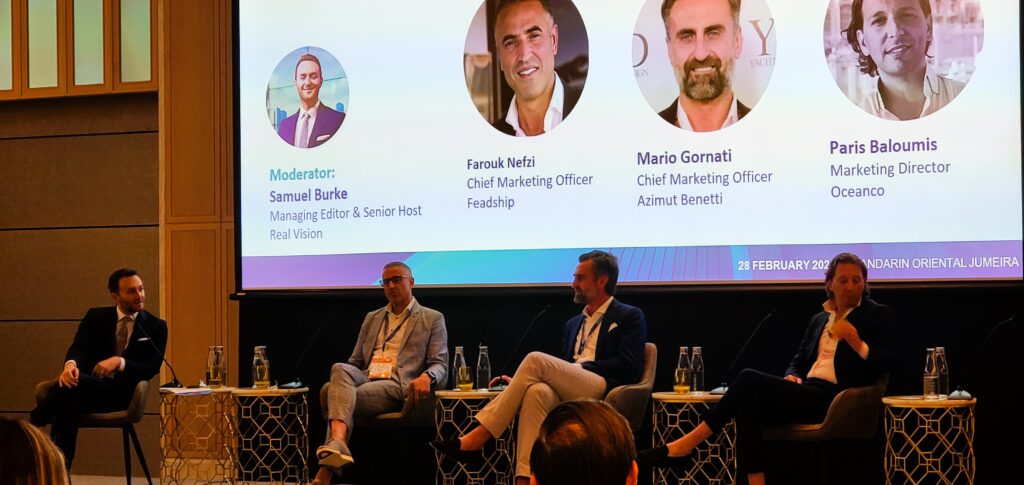
This has lead to shifting marketing strategies, adapting marketing strategies to attract this new generation, which have encouraged adjustments to marketing approaches to better resonate with this segment and given birth to new ideas for products, services, and experiences that cater to the evolving yachting market. This could involve using digital channels, emphasizing experiences, and aligning with values like sustainability.
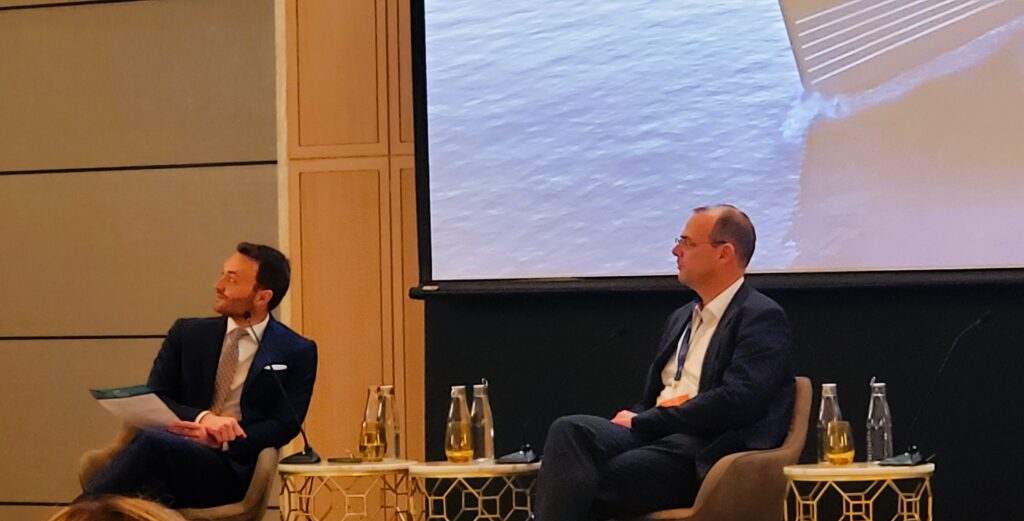
Thomas Weigend, Managing Director of Meyer Werft, on his building the phenomenal fabulous Njord yacht, a 948-foot luxury vessel described as “the world’s largest private residence yacht” with 117 private apartments, discussed the ambition of scale and elegance – a fitting tribute to Dubai.
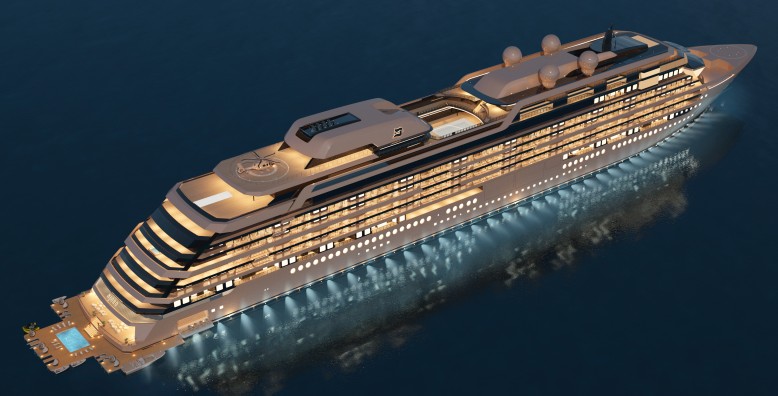
The summit was followed by a fabulous lunch, on the verandah, cool breeze and a fantastic spread of food and desserts, lots of americano.
